'He told me not to trust any other police officer'
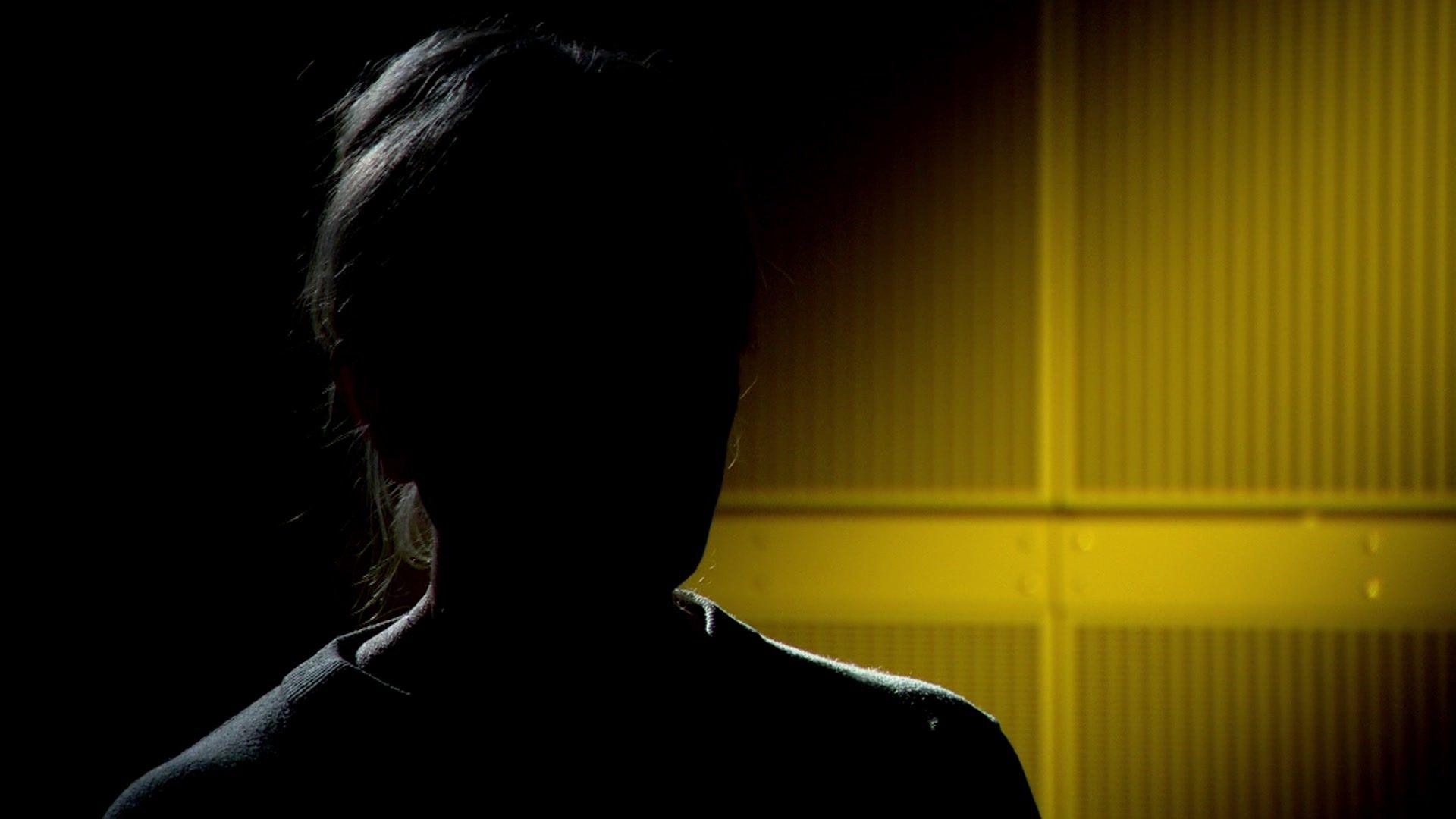
Lorraine says she has "absolutely no confidence" that predatory officers will be removed from the Metropolitan Police
- Published
The crimes of Wayne Couzens, who killed Sarah Everard, and the prolific sex offender David Carrick have put the Metropolitan Police under increasing pressure to take action against predatory officers within the ranks. BBC London speaks to a woman about her struggle to report an officer eventually found guilty of gross misconduct for trying to groom her into a sexual relationship.
Lorraine - not her real name - has little confidence that the changes Commissioner Sir Mark Rowley has been introducing will reform the Met Police and restore the trust of women and girls.
She says her ordeal was so traumatising, she would advise any friend in a similar situation not to seek redress from the force.
When PC Phil Hunter visited Lorraine's home in August 2017, she thought he was "a really nice guy".
Her relationship had broken down and she told me she was feeling angry, upset and vulnerable.
PC Hunter, who attended her home as part of a welfare check, assured her he understood exactly what she was going through.
"He kept telling me how lovely I was and this shouldn't have happened to me. He wrapped his arms around me and told me I was lovely and was beautiful and I shouldn't let these things upset me."
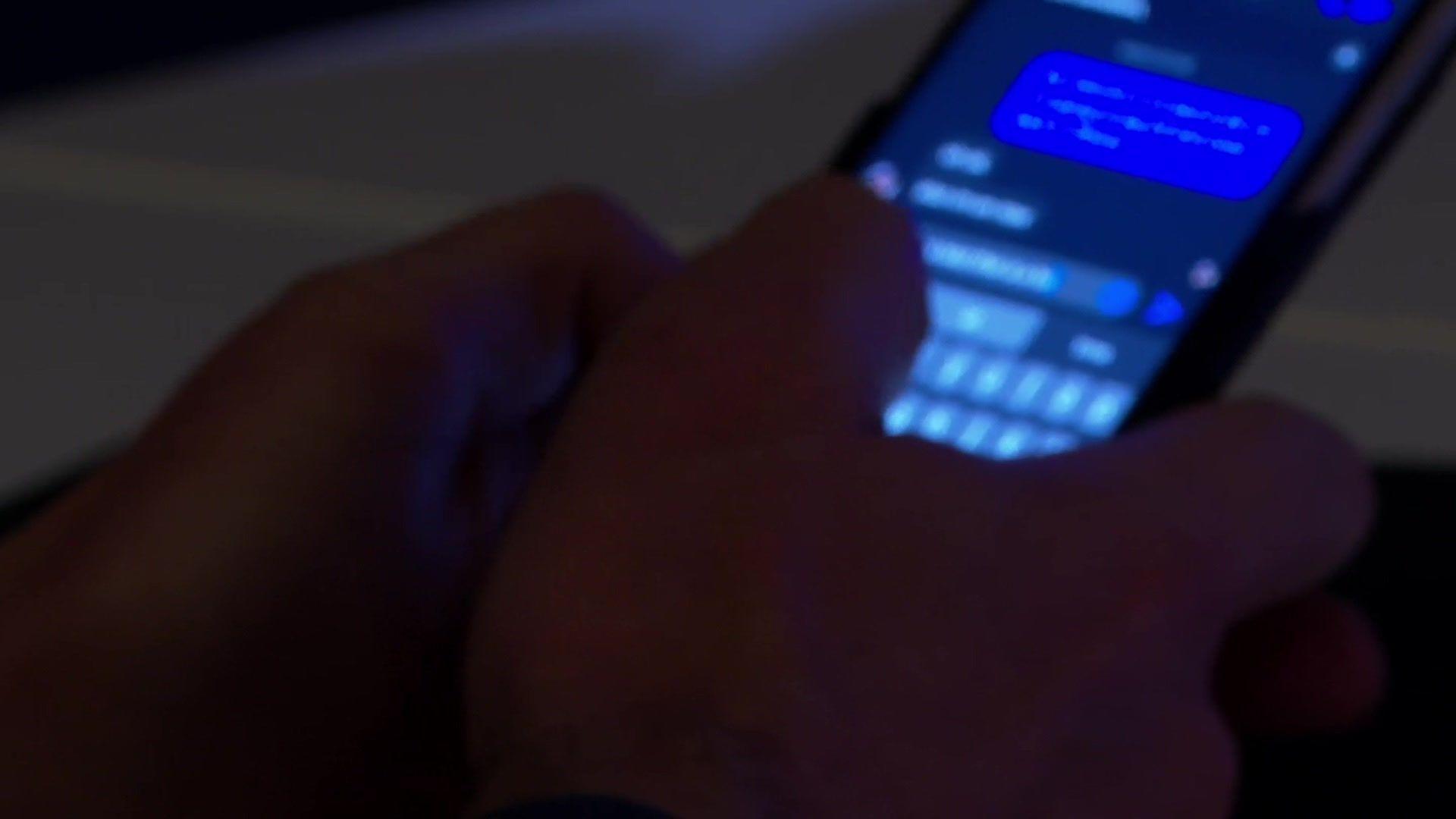
A disciplinary panel found PC Hunter had a "deliberate" and "predatory" plan to begin a sexual relationship with Lorraine
Lorraine said he wrote down his mobile phone number, and told her to call him if she ever wanted to meet for a coffee.
"He told me, 'I'm here for you because I'm your friend,' and I believed him."
Trusting PC Hunter, and feeling desperate for help, she texted him a week later.
But the officer, according to the findings of a disciplinary panel, had a "deliberate" and "predatory" plan to have a sexual relationship with her.
It heard that over the following two years, he sent Lorraine inappropriate messages, and that he had tried to isolate her.
"He told me not to trust any other police officer; he was the only one who could help me," she said. "To not trust my friends and family, to separate myself from them because I couldn't trust them. That he was the only person who believed in me and understood me."
'That's how police officers met partners'
Guidance from the College of Policing at the time warned officers not to "engage in or pursue a sexual or improper emotional relationship, on or off duty, with any member of the public who you have come into contact with during the course of your current work or duties".
But when Lorraine decided to report PC Hunter's behaviour, she said she had to "beg the Met for help" and has accused the force of trying to discredit her.
She said officers told her "that sexual predators only exist in the minds of Daily Mail readers".
Lorraine added: "I did have officers say to me it was a particular witch hunt that was going on at that time, and that it was no big deal. That's how police officers met partners, that's how they had relationships."
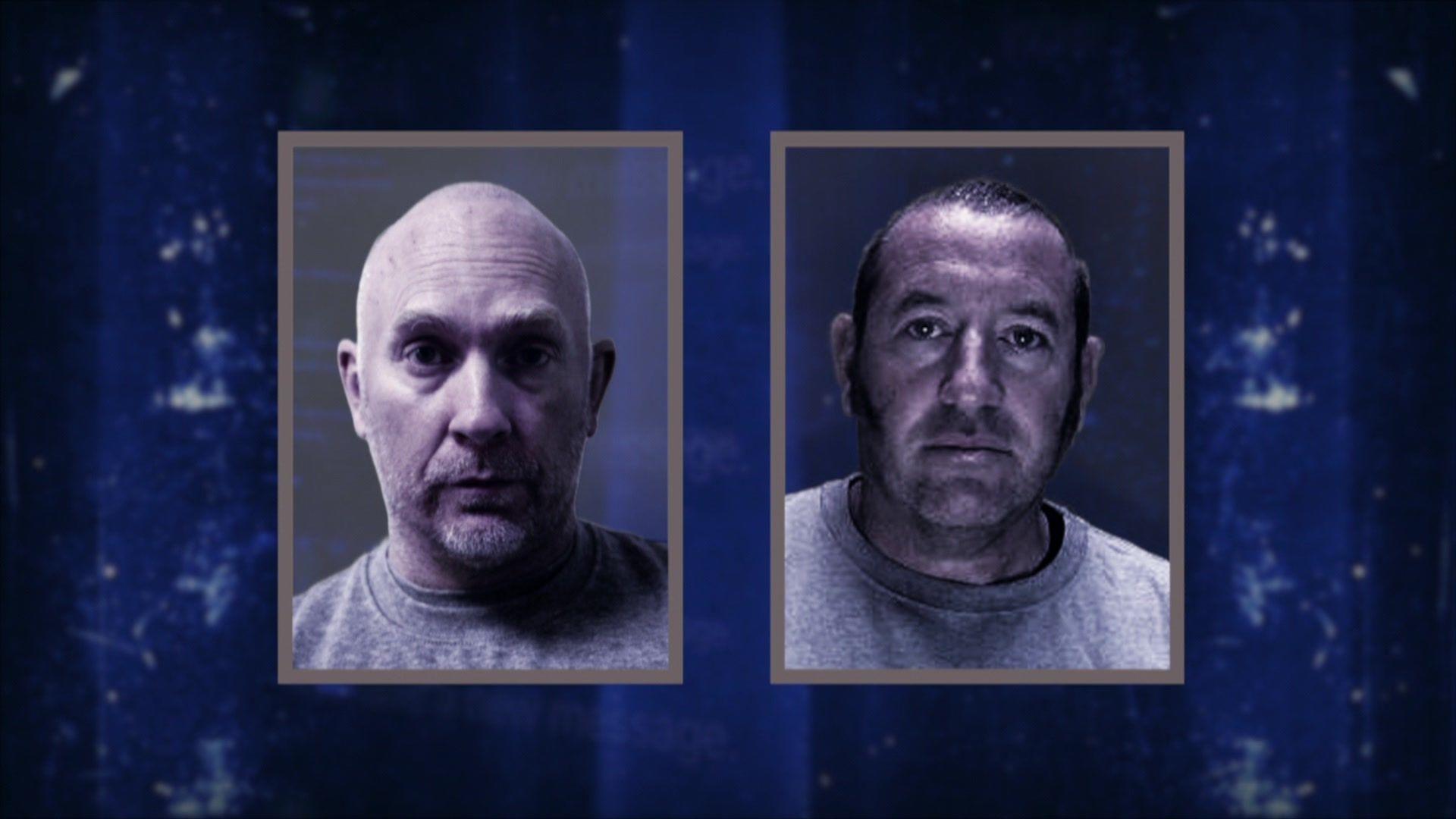
The Metropolitan Police has been under pressure to take action against predatory officers following the crimes of Wayne Couzens and David Carrick
It was to take another five years for the case to come before a misconduct tribunal.
PC Hunter did not attend the hearing in Southwark, south London, in August.
In a statement, he denied the allegations, claiming his messages to Lorraine had been “simply supportive communication”.
But the panel found him guilty of gross misconduct and ruled he would have been sacked had he not already left the Met.
'No justice for women like me'
PC Hunter retired in 2019, while under investigation for a case involving another vulnerable woman he had met during a welfare visit, and with whom he started a sexual relationship.
He was found guilty of gross misconduct a year later for his behaviour towards the woman.
At the hearing into Lorraine's case, PC Hunter was described as displaying a "pattern of sexually predatory behaviour".
But despite the ruling of gross misconduct, Lorraine said she had been left feeling there was "no justice for women like me".
She felt as though she had had no voice during the process, and was upset that a recorded video of her evidence, explaining the impact of PC Hunter's behaviour, was not played to the panel.
"It wouldn't have made any difference if I was there or not.
"Nobody wanted to hear anything I had to say. At one point, I wanted to scream, 'it's me, I'm sat right here!' It was like watching a film about yourself, and you can't do anything to be part of the film."
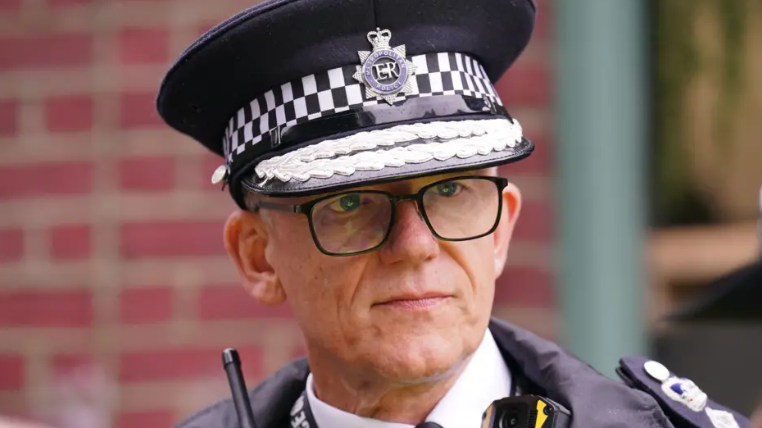
Sir Mark Rowley says the Met is working to root out sexual offenders within its ranks
Looking back at her experience, she told me that, with hindsight, she would "absolutely not" have reported PC Hunter's behaviour, and that if a friend of hers was in a similar situation she would give her the same advice.
"I would get them whatever help I could, but I would tell them not to report it.
"I would say the process of reporting is worse than anything he put me through."
When Sir Mark took up his role as Met commissioner two years ago, he promised to root out corrupt and predatory officers and restore the trust of women and girls.
A number of reforms have been introduced, including the creation of two hotlines, one internal and one for the public, to report allegations of corruption and abuse involving Met officers and staff.
Sir Mark has also previously pointed to an increase in dismissals and completed misconduct cases, which he described as the force's "biggest doubling down on standards" in 50 years.
The Met told the BBC that under Sir Mark’s leadership it had increased the number of misconduct hearings and investigations, dismissing just under 100 officers in the past nine months - more than double the previous rate.
'If a police officer is a predator, who do I go to?'
However, Lorraine said she had "absolutely no confidence" that predatory officers would be removed.
"I believe Sir Mark Rowley has good intentions, but I don't believe it's within his capacity during his tenure to be able to achieve it."
She put some of this down to the internal culture of the force, telling me that an officer who realised he had once worked in the same department as PC Hunter told her, following the panel's findings: "Oh my God, he was known for it."
She said when she asked why PC Hunter's behaviour had not been challenged she was told, "that's not what we do".
Lorraine said all officers had a duty to act. "Until you stand up and say, 'not in my name', and call out every one of your colleagues you have concerns about, then nothing will change," she told me.
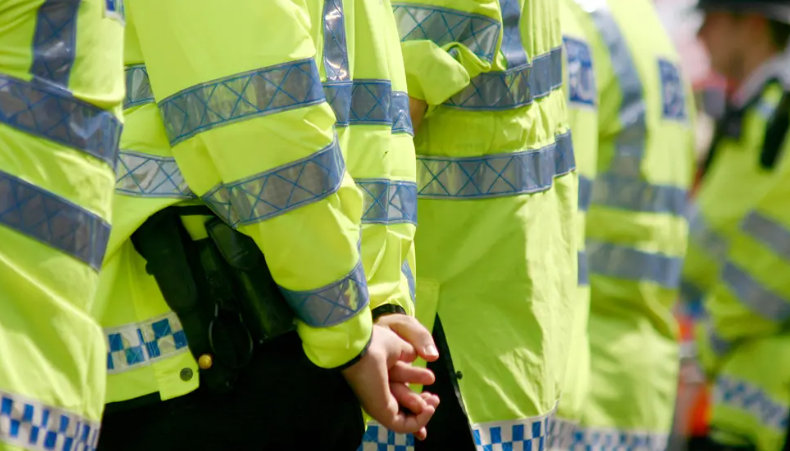
The Met Police says it now has "a wholly different approach" in how it handles claims made against officers
She insisted she was not "bashing" the Met Police and "has nothing but respect for officers" who she says are being let down by those who abuse their position.
But Lorraine is upset by messages she has seen shared on social media.
"You see them make comparisons to someone like Harold Shipman, and say, 'well that didn't stop people wanting to see a doctor'. They're missing the point, and they're making the situation worse for victims like me.
"If my doctor is a predator, who do I go to? I go to the police. If a teacher is a predator, who do I go to? I go to the police. If a police officer is a predator, who do I go to? That's what they're fundamentally missing."
'In the past we have victim-blamed'
Cdr Katie Lilburn, who leads the Met's Directorate of Professional Standards, has written to Lorraine to make an "unreserved apology" for PC Hunter's actions and for the force's failure to connect his "predatory sexualised behaviour" much earlier.
The letter also refers to the Met's Operation Onyx, which looked at completed cases where allegations of domestic abuse or sexual violence were made against officers or staff.
The letter to Lorraine said that one of the common flaws identified by the reviews was that "investigators previously took a very narrow and singular approach", rather than "considering a wider, holistic view" to look at "patterns of offending".
Cdr Lilburn wrote that the Met now had "a wholly different approach".
Assistant Commissioner Laurence Taylor, head of professionalism at the Met, also apologised that Lorraine’s case had taken so long to be heard - but said the force had changed its approach.
“Too often in the past we have victim-blamed and we have looked to check the credibility of victims, rather than focusing on the behaviour of the suspects.
“It’s absolutely our focus now to make sure that women and girls... can believe that we are taking it very seriously.”
Lorraine told me she wanted to see better support for victims and for the Met to take a more proactive approach when investigating officers who have been found to have targeted vulnerable women.
"Why aren't they going back and looking at the contact those officers had with vulnerable women while they were serving?
"I asked that question, and they said, 'well, we don't do fishing expeditions, the women would have to come forward'.
"But how many vulnerable women have tried to report and given up? It's a can of worms that the Met Police don't want to open."
Listen to the best of BBC Radio London on Sounds and follow BBC London on Facebook, external, X, external and Instagram, external. Send your story ideas to hello.bbclondon@bbc.co.uk, external